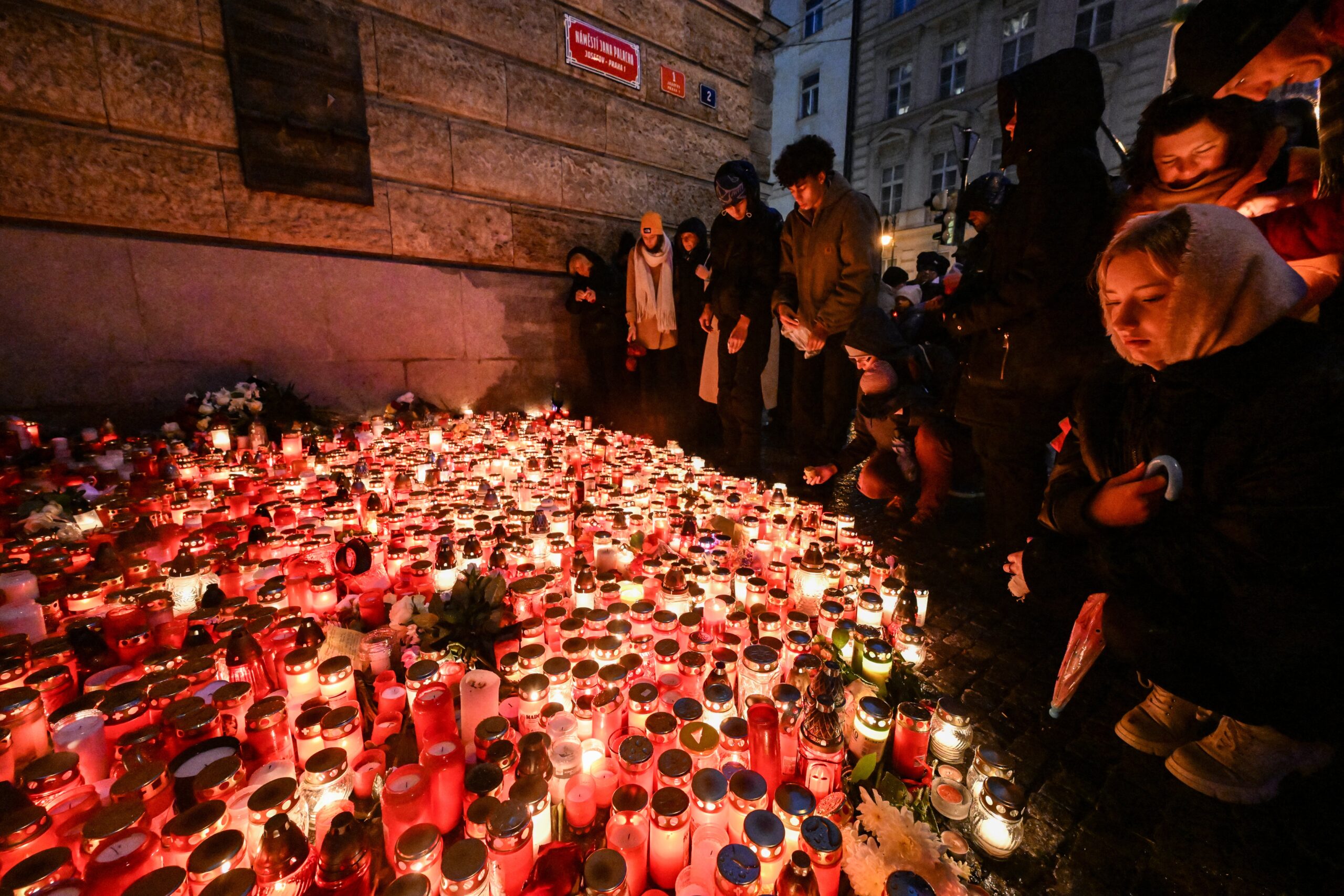Trigger warning this article contains discussion of mass shooting and suicide.
On 21 December 2023, I entered the faculty of arts building of Charles University in Prague to attend what would become the last lecture of my Erasmus. To celebrate the rapidly approaching holidays, the lecturer had passed out a box of gingerbread while we discussed Ovid’s Metamorphosis and its depiction of the environment. At 2.59pm, a gunman, a former student, entered the building. Standing four floors above my own classroom, he killed 14 people and injured 25 others before killing himself.
Growing up in the American public school system, I’ve had the active shooter on a school campus routine drilled into my head since I was six years old: hide behind as much cover as you can, shield your head, stay as silent as possible, and wait until you hear the authorities. I’ve done it so many times that when we heard gunfire and scrambled behind desks, it felt, on some level, like the same drill I’ve done dozens of times before. It was only in the evacuation from the building and the hours spent waiting in a secondary location, sitting on the floor with hundreds of others (all of us wrapped in foil trauma blankets under the watchful eye of heavily armed police officers), that I could begin to comprehend the tragedy which had just unfolded around me. I’m still trying to comprehend it.
The enormity of the event is something that I’m still dealing with: the knowledge that students and teachers lost their lives so close that we could hear the gunshots, the unimaginable surreality of knowing that the fact that I am alive purely by chance, the anger at the complete senselessness of it all. It’s something that I was entirely unequipped to handle, until I was there. You can’t help being changed by tragedy, but you can work on choosing how it changes you.
When seeing violence from the distance of social media, it’s easy for its effects on individual lives to be lost in the breakneck pace of algorithms focusing on the most eye-catching aspects. Living through it has, at least for me, been a reminder that these events endure long after in the memory and culture of the communities they were inflicted upon.
The aftermath of the shooting has been defined by an outpouring of support. When, long after night had fallen, we were finally able to leave the police zone, me and everyone from my building grouped together and made our way home. In the chaos of the evacuation, people had lost keys, passports, mobile devices, and more—so we huddled together and shared what we had to make sure that everyone could make it through the night. I had a spare bed, which I quickly offered to a man who had lost his keys. Someone else handed me their phone so that I could text my family and let them know I was okay. We spent the rest of the night curled up in someone’s apartment, sharing snacks and finding comfort in knowing that we were home after the longest day of our lives.
The support I’ve received from not only friends and family, but also Charles University, has been absolutely foundational to my emotional recovery since the shooting. The bonds formed that day–reaffirmed through tearful hugs, daily check-in texts and the quiet understanding of a shared experience–will stay with me far longer than my newfound tendency to jump at any loud and unexpected nearby noises will.
Trinity, too, has been incredibly helpful. Soon after learning about the shooting, the Global Room reached out to my emergency contact to let them know what happened and inquire about my safety. In the aftermath, the Global Room has been in close contact with me, offering multiple resources to ensure my well-being, including access to the Student Counselling Service. My course coordinator, too, contacted me, not only expressing concern for my wellbeing but also assuring me that I should not worry too much about the academic complications of the shooting.
Community support must be the answer to the alienating experiences of violence, grief, and fear. Earlier last year, I watched with pride from abroad while my friends and peers responded to the far-right, anti-immigration riots in Dublin with solidarity and prompt action, offering support for those affected and turning the experience into one which reaffirmed the unity of our campus and the city as a whole. As extremism becomes increasingly common, it is absolutely necessary for us to find ways to offer assistance to those in need, and build institutions which strengthen community and inter-community bonds on both individual and structural levels.
Soon after returning to Prague, I joined hundreds of strangers in linking arms to form a silent memorial chain around the Faculty of Arts building, now ringed by layers of mourning candles. The coming weeks will be a time for me to continue to process my emotions and grief at the shooting—it’s a comfort to know that I won’t be alone in that process.






